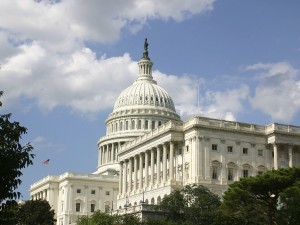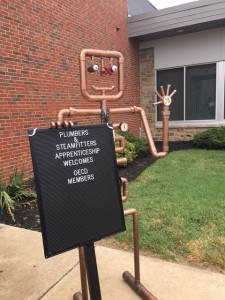 Yesterday, the full Senate Appropriations Committee approved a $161.9 billion funding measure for federal programs falling under the jurisdictions of the U.S. Departments of Labor (Labor), Health and Human Services (HHS), and Education (ED) in Fiscal Year (FY) 2017. The overall allocation of funding made available for this bill, known as a 302(b) allocation, was $270 million below FY 2016 levels. This meant that programs falling under this part of the budget all faced reductions in order to stay within the new FY 2017 cap even before individual funding decisions were made by the committee this week.
Yesterday, the full Senate Appropriations Committee approved a $161.9 billion funding measure for federal programs falling under the jurisdictions of the U.S. Departments of Labor (Labor), Health and Human Services (HHS), and Education (ED) in Fiscal Year (FY) 2017. The overall allocation of funding made available for this bill, known as a 302(b) allocation, was $270 million below FY 2016 levels. This meant that programs falling under this part of the budget all faced reductions in order to stay within the new FY 2017 cap even before individual funding decisions were made by the committee this week.
The legislation, as passed yesterday, would provide level funding for state formula grants under the Carl D. Perkins Act (Perkins)— approximately $1.117 billion overall for law’s Title I program or the same amount the program has received since FY 2014.
The bipartisan bill, the culmination of negotiations between Senators Roy Blunt (R-MO) and Patty Murray (D-WA) is the first time Labor-HHS-ED funding legislation has passed the full Senate Appropriations Committee since 2009.
Overall the bill reduces ED’s budget by $220 million from the previous fiscal year although this figure does not take into account changes that would be made to the department’s largest program—federal Pell grants. A key piece to understanding the committee’s decision-making on this legislation date back to March when, at that time, the Congressional Budget Office (CBO) projected a $7.8 billion surplus for Pell grants in the coming fiscal year.
In light of these additional funds, Senate appropriators have proposed to use a portion of this year’s Pell surplus to reinstitute “year-round Pellâ€â€” a provision the Obama Administration scrapped in 2011 as a cost savings measure which allows students to use their Pell awards during the summer months and accelerate their postsecondary studies. The bill also increases the maximum Pell award for the 2017-18 academic year to $5,935 although year-round recipients are capped at 150% of that maximum.
The Senate Appropriations Committee however took another chunk out of this surplus by also proposing to use a significant portion of it to fund other non-student-aid items in the budget, including a $2 billion proposed funding increase for the National Institutes of Health (NIH). Many higher education organizations, as well as the Congressional Tri-Caucus, voiced strong opposition to this proposal saying, in part, “Students cannot afford to continue subsidizing other areas of the budget.â€
Advance CTE agrees with these concerns and believes that any additional funding freed up as a result of a Pell surplus should be used exclusively for education. However, such a move by lawmakers further underscores the importance of increasing or dissolving current “budget caps†that have been in place for several years as a result of the Budget Control Act of 2011, legislation that constrains the amount of resources available for important investments in our nation’s education system among other vital national priorities.
In addition to these provisions, the recently passed bill also proposes to cut Workforce Innovation and Opportunity Act (WIOA) state formula programs by 3% or $73.8 million while providing a 10% increase for USDOL’s apprenticeship grant program to $100 million overall.
With the Senate’s work on a Labor-HHS-ED bill complete for the time being, attention turns to the House of Representatives where the appropriations committee in that chamber is widely expected to consider their version of the bill before recessing in mid-July. Although the deadline for all FY 2017 funding legislation is September 30th, the limited amount of legislative days left on the Congressional calendar will likely necessitate a temporary stop-gap funding measure—known as a continuing resolution— to put difficult (and final) federal budget decisions for FY 2017 until after the Presidential election this November.
Nevertheless, these appropriations bills will likely be used as a starting point for future negotiations on federal spending later this year. They are important mileposts for what the CTE community should expect with regards to education and workforce development funding for the coming fiscal year, but it is important to keep in mind that this legislation has not been enacted.
Be sure to check back here for more updates and analysis on the federal appropriations process as events continue to unfold.
U.S. Department of Education Releases Proposed ESSA Rules
As part of the ongoing implementation of the Every Student Succeeds Act (ESSA), legislation that reauthorizes the Elementary and Secondary Education Act (ESEA), the U.S. Department of Education (USDE) released a draft version of rules outlining proposed requirements for state plans, accountability systems, and reporting responsibilities.
This new batch of proposed regulations— known as a Notice of Proposed Rulemaking (NPRM)— is open for public input and comment until August 1, 2016. Overall the NPRM hews closely to the newly passed law, providing substantial new flexibility to states and locals with regards to implementation. By comparison, another departmental proposal on so-called “supplement-not-supplant†regulations was met with far more concern earlier this month as we shared previously.
Interested stakeholders are encouraged to provide feedback to the department for how to improve upon this proposal by the above deadline. A summary of the rules can be found here, the full proposal is over this way, and comments can be submitted via this portal.
Odds & Ends
- Earlier this week, Speaker Paul Ryan unveiled a new legislative agenda aimed at tackling poverty and ensuring economic opportunity for more Americans. The report offers four broad recommendations for the reauthorization of the Perkins Act. Read more here starting on page 27.
- Senator Ron Wyden (D-OR) spoke at length on the Senate floor this week about a high-quality CTE program in his state and encouraged his colleagues to continue their efforts to reauthorize the Perkins Act. Watch his remarks here.
- Last month USDE announced the 44 postsecondary institutions selected as part of its “experimental sites†initiative for Pell grants. The efforts will, on a limited and piloted basis, allow an estimated 10,000 students to use $20 million in Pell Grants to take dual and concurrent enrollment courses. Read the list of institutions here and more information on the effort can be found here.
- USDE has announced another delay in the ongoing implementation of its “gainful employment†rule which aims to hold certain postsecondary institutions accountable for their students’ debt-to-earnings ratios. The hold-up relates to USDE’s release of “completers listsâ€â€” data that is necessary to determine these ratios. This interim step was originally slated for release last winter and has now been delayed until “later in Juneâ€. More on the delay from the department is available here.
Steve Voytek, Government Relations ManagerÂ

 Probably the most fun part of the event was the afternoon dedicated to visiting WBL in action at programs throughout Baltimore. I had the chance to visit Plumbers & Steamfitters Local No. 486 and FreshStart-Living Classrooms, two very different programs supporting individuals through rigorous technical instruction and on-the-job training.
Probably the most fun part of the event was the afternoon dedicated to visiting WBL in action at programs throughout Baltimore. I had the chance to visit Plumbers & Steamfitters Local No. 486 and FreshStart-Living Classrooms, two very different programs supporting individuals through rigorous technical instruction and on-the-job training.

